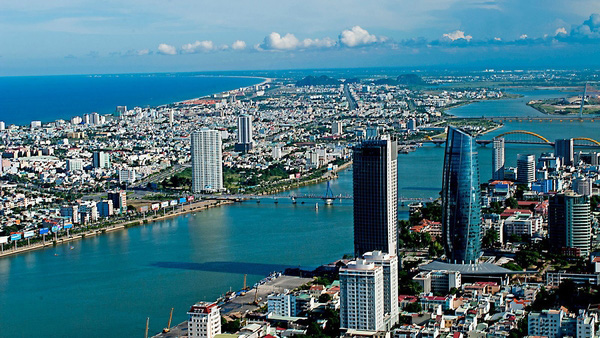


|
A panorama of Da Nang city
In attendance were the Da Nang leaders; representatives from the
departments, the institute for socio-economic development, the business
incubator and the startup network in the city; Marko Saarinen, a counsellor
and head of the development cooperation department of the Finnish Embassy;
and Finnish experts.
In his opening remarks, Ho Ky Minh, Vice Chairman of the Da Nang
municipal People’s Committee, stated that the project on building Da Nang
into a smarter city, approved by the municipal People’s Committee in 2014,
has developed five priority areas for implementation, including smart
transport, smart water supply, smart water drainage, food safety control, and
the building of a connected city.
Since July 2014, Da Nang has officially inaugurated and put into
use an e-government information system, he said, adding that the city’s
effective IT application and e-government operations have been highly
appreciated by agencies, organisations and the IT community.
Minh said that the building and application of the smart city
and e-government models has helped Da Nang to create new power for its
apparatus to operate more effectively and transparently, while providing more
information and better services for people, businesses and organisations.
At the workshop, the Finnish partners pointed out the advantages
and challenges to Da Nang in developing a smart and innovative city, whilst
recommending solutions that suit the city’s conditions. They also shared
Finland’s experience in the field, which are the application and development
of IT to enhance companies’ competitiveness, and the facilitation of citizen
participation in state management and social administration work.
Tom Hintsanen, an urban planning director in Turku city
(Finland), said that in order to build a smart and innovative city, there
needs to be a combination of many different factors and resources, such as
infrastructure; smart and modern utilities; green tree parks; the use of
clean energy at hospitals, schools and houses; a system of public transport
means in service of locals; and the creation of jobs for labourers.
|
Source: NDO